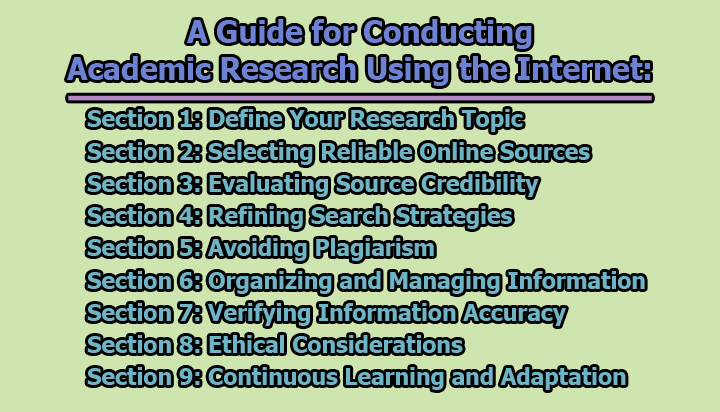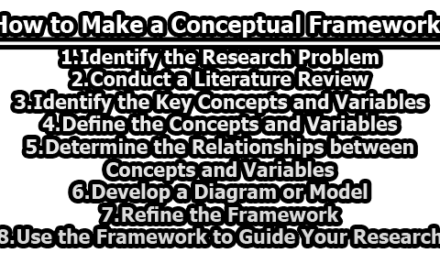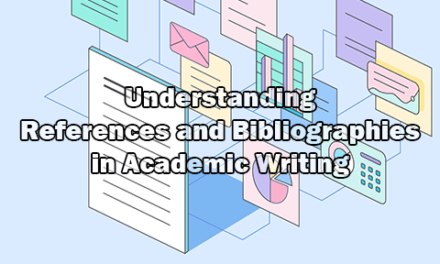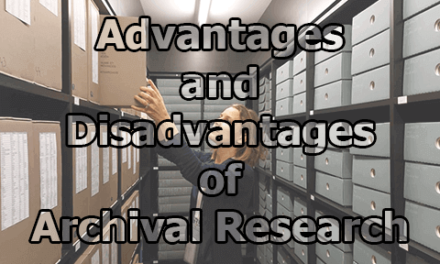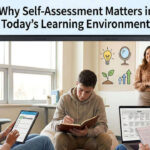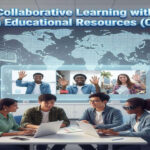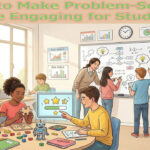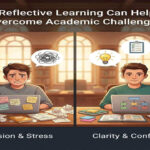A Guide for Conducting Academic Research Using the Internet:
In the era of digital information, the internet has become an indispensable tool for academic research. The vast amount of information available online offers researchers unprecedented access to diverse sources. However, navigating this vast sea of information requires a set of guidelines to ensure the effectiveness and credibility of research. In this article, we will provide a guide for conducting academic research using the internet, offering practical tips and strategies to enhance the quality of your research endeavors.
Section 1: Define Your Research Topic:
Defining the research topic is the foundational step in the research process, providing a clear roadmap for the investigation. This involves articulating a concise and focused research question or statement that directs the subsequent search for information.
1.1 Clarity of Purpose:
- Clearly defining the research question or topic is essential for guiding the research process.
- Articulate the purpose of the study with precision, avoiding ambiguity to ensure a focused exploration.
1.2 Keyword Identification:
- Identify relevant keywords and key phrases associated with the research topic to facilitate effective online searching.
- Using synonyms and alternative terms broadens the search scope, capturing a more comprehensive range of relevant information.
By honing in on a well-defined research topic and utilizing carefully selected keywords, researchers lay the groundwork for a targeted and fruitful exploration of academic resources, setting the stage for a rigorous and purposeful investigation.
Section 2: Selecting Reliable Online Sources:
Choosing reputable sources is paramount to ensuring the credibility and reliability of the information gathered during the research process. In the digital age, a multitude of online resources are available, but researchers must be discerning in their selection to maintain scholarly integrity.
2.1 Academic Databases:
- Reputable academic databases, such as JSTOR, PubMed, ERIC, HINARI, Emerald Insight, Google Scholar, BASE, WorldCat, Refseek, VLRC, ResearchGate, and Microsoft Academic; should be prioritized for their wealth of scholarly articles and papers.
- Access to these databases through institutional channels ensures the authenticity and reliability of the information retrieved.
2.2 Peer-Reviewed Journals:
- The preference for information from peer-reviewed journals is a crucial criterion for establishing the credibility of research findings.
- Journals with high impact factors often indicate a rigorous peer-review process, enhancing the reliability and significance of the published content.
2.3 Government and Educational Websites:
- Government websites (.gov) and educational institutions (.edu) are valuable sources for authoritative and unbiased information.
- These sources often provide statistics, reports, and research findings that contribute to the robustness of academic research.
2.4 Libraries and Online Catalogs:
- Online catalogs of libraries and archives serve as repositories for books, theses, and physical resources, complementing digital sources.
- Virtual libraries offer convenient access to a plethora of academic materials, enhancing the depth and comprehensiveness of the research.
By selecting sources judiciously from respected databases, journals, government and educational websites, as well as libraries, researchers can ensure the quality and authenticity of the information they integrate into their scholarly work, establishing a solid foundation for a robust research project.
Section 3: Evaluating Source Credibility:
Ensuring the credibility of chosen sources is crucial to maintaining the quality and reliability of academic research. Evaluation of source credibility involves a meticulous examination of authorship, publication details, and the reputation of the journal or platform.
3.1 Authorship and Credentials:
- Investigate the qualifications and expertise of the authors to gauge the reliability of the information presented.
- Look for affiliations with reputable institutions and academic credentials, which serve as indicators of the author’s authority on the subject matter.
3.2 Publication Date:
- Consider the publication date as a critical factor in determining the currency and relevance of the information.
- Some research topics may require the latest information, while others may permit the inclusion of older, foundational sources.
3.3 Journal Reputation:
- Assess the reputation of the journal or publication outlet where the research is disseminated.
- High-impact factor journals are often associated with rigorous peer-review processes, lending credibility to the research published within them.
3.4 Citations and References:
- Examine the quality and quantity of citations within the source, as a well-referenced article indicates a thorough literature review and supports the credibility of the research.
- The presence of reputable sources in the reference list adds a layer of authenticity to the information presented.
By diligently evaluating author credentials, publication details, and the reputation of the publishing platform, researchers can fortify the reliability of their sources, contributing to the overall credibility and validity of their academic work.
Section 4: Refining Search Strategies:
Effective search strategies are pivotal in navigating the vast expanse of information available on the internet. Researchers must employ systematic approaches to refine search queries, utilizing tools and techniques that enhance the precision and relevance of the obtained results.
4.1 Boolean Operators:
- Master the use of Boolean operators (AND, OR, NOT) to refine search queries and tailor results to specific research needs.
- Combine keywords strategically using these operators to yield more accurate and focused results.
4.2 Filters and Advanced Search Options:
- Leverage filters and advanced search options provided by search engines and databases to streamline the information retrieval process.
- Narrow down results based on publication type, date range, and other criteria relevant to the research objectives.
By incorporating Boolean operators and utilizing advanced search features, researchers can enhance the precision of their searches, saving time and ensuring that the information retrieved aligns closely with the research focus. This strategic approach contributes to the efficiency and effectiveness of the research process, ultimately leading to more robust and well-informed scholarly work.
Section 5: Avoiding Plagiarism:
Maintaining academic integrity is a fundamental aspect of research, and avoiding plagiarism is essential for producing original and ethically sound work. Researchers must be aware of the definition of plagiarism and take proactive measures to attribute sources appropriately.
5.1 Understanding Plagiarism:
- Familiarize yourself with the concept of plagiarism, which involves using someone else’s work without proper attribution.
- Plagiarism can take various forms, including copying and pasting text, paraphrasing without citation, and submitting someone else’s work as your own.
5.2 Use Plagiarism Detection Tools:
- Employ plagiarism detection tools like Turnitin, Grammarly, or Plagscan to ensure the originality of your work.
- These tools highlight potential instances of plagiarism, allowing researchers to review and correct any unintentional misuse of sources.
Adhering to ethical guidelines regarding plagiarism is not only a matter of academic integrity but also a demonstration of respect for the intellectual contributions of others. By citing sources appropriately and utilizing plagiarism detection tools, researchers can uphold the principles of honesty and transparency in their scholarly endeavors.
Section 6: Organizing and Managing Information:
Efficient organization of information is crucial to the research process, facilitating the synthesis of diverse sources and the creation of a coherent and well-structured academic work. Researchers should adopt systematic approaches to note-taking and leverage reference management tools for seamless integration of citations.
6.1 Note-Taking:
- Develop a systematic approach to note-taking that aligns with the structure of your research.
- Clearly label and categorize notes based on themes or topics to enhance retrieval and organization during the writing phase.
6.2 Reference Management Tools:
- Utilize reference management tools such as EndNote, Zotero, or Mendeley to organize and format citations.
- These tools automate the citation process, ensuring consistency and accuracy in formatting throughout the research paper.
Effective organization and management of information not only streamline the writing process but also contribute to the overall coherence and professionalism of the final research output. By adopting these practices, researchers can navigate the complexities of handling diverse sources with ease and precision.
Section 7: Verifying Information Accuracy:
Ensuring the accuracy of information is paramount in producing reliable research. Researchers must adopt a critical mindset and implement verification strategies to confirm the authenticity and trustworthiness of the data and claims obtained from various sources.
7.1 Cross-Check Information:
- Cross-reference information obtained from multiple sources to verify accuracy and identify potential discrepancies.
- Identify consensus among reputable sources to establish the credibility of data and minimize the risk of relying on misinformation.
7.2 Fact-Checking Websites:
- Consult fact-checking websites such as Snopes and FactCheck.org to verify the accuracy of specific claims and statistics.
- These platforms specialize in scrutinizing information, helping researchers discern between reliable data and potentially misleading or inaccurate content.
By implementing rigorous cross-checking and utilizing fact-checking resources, researchers can fortify the accuracy of their findings. This meticulous approach not only safeguards the credibility of the research but also contributes to the advancement of knowledge by ensuring the dissemination of accurate information.
Section 8: Ethical Considerations:
Ethical considerations are foundational to responsible research practices. Researchers must navigate their studies with a keen awareness of ethical guidelines, respecting copyright laws, obtaining informed consent when necessary, and upholding the privacy and confidentiality of research participants.
8.1 Respecting Copyright Laws:
- Adhere to copyright laws when using images, charts, or other materials in your research.
- Seek permission for the use of copyrighted materials or ensure compliance with fair use policies, respecting the intellectual property of others.
8.2 Informed Consent for Research Participants:
- If your research involves human subjects, ensure proper informed consent is obtained before collecting data.
- Respect the autonomy and rights of participants, providing clear information about the research objectives and potential implications.
Ethical considerations extend beyond legal compliance; they are essential for building trust within the academic community and ensuring the well-being and rights of all parties involved in the research process. Researchers who approach their work with integrity and ethical mindfulness contribute to the overall credibility and positive impact of their studies on both scholarly knowledge and society at large.
Section 9: Continuous Learning and Adaptation:
Staying abreast of advancements in research methods, technologies, and tools is essential for maintaining the relevance and effectiveness of academic inquiry. Researchers should commit to continuous learning, attending workshops, webinars, and conferences to enhance their skills and adapt to evolving methodologies.
9.1 Stay Updated on Research Methods:
- Regularly engage with literature and publications to stay informed about advancements in research methods.
- Attend workshops and training sessions that offer insights into innovative methodologies and approaches.
9.2 Adapt to Evolving Technologies:
- Embrace new technologies and tools that enhance the efficiency and effectiveness of online research.
- Experiment with innovative approaches and methodologies to address emerging research challenges and opportunities.
By fostering a commitment to continuous learning and adaptation, researchers position themselves as dynamic contributors to their respective fields. Embracing new ideas and methodologies not only enhances the quality of individual research projects but also contributes to the collective advancement of knowledge within the academic community.
In conclusion, conducting effective academic research using the internet requires a combination of strategic planning, critical evaluation, and ethical considerations. By following these comprehensive guidelines, researchers can navigate the digital landscape with confidence, ensuring the credibility and relevance of their findings. Embrace the opportunities offered by the internet while maintaining a discerning and scholarly approach to information retrieval and synthesis.

Library Lecturer at Nurul Amin Degree College

